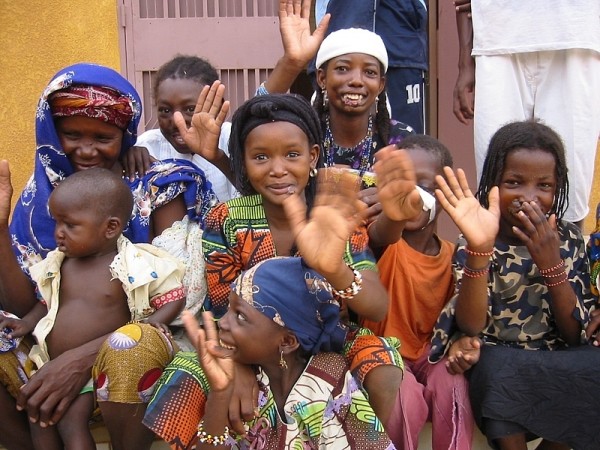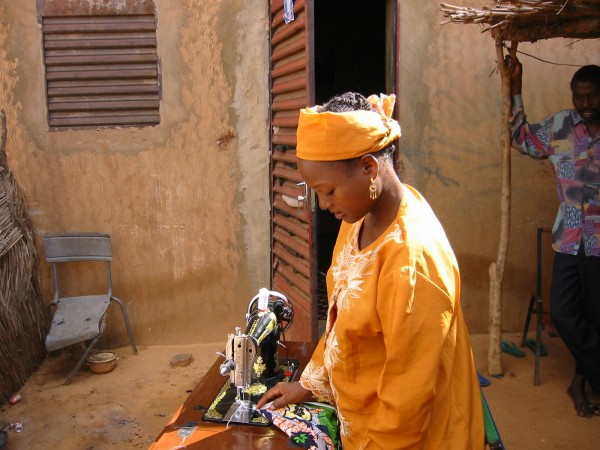Aftercare
 Patients are registered at the children’s houses during all stages of the disease. They receive food and antibiotics if they are accutely suffering from noma. From the houses they are transferred to the clinic for surgery, if necessary. Accompanying family members are trained in oral hygiene with small wooden sticks. Tooth paste or tooth brushes would be useless, since the families cannot afford them later on.
Patients are registered at the children’s houses during all stages of the disease. They receive food and antibiotics if they are accutely suffering from noma. From the houses they are transferred to the clinic for surgery, if necessary. Accompanying family members are trained in oral hygiene with small wooden sticks. Tooth paste or tooth brushes would be useless, since the families cannot afford them later on.
The women can participate in cooking courses to learn about using food in a way that preserves nutrients. They are also educated about the advantages of milk: even 1/4 l milk per day is enough to strengthen the immune system of the children. Eating eggs would also help children. But many people in Niger believe that their children will become thieves if they eat eggs. Such views have to be changed in order to help the children and only tribal members can do that. Women have to be educated about ways to stop nursing their children because they often do it too abruptly. This can lead to children refusing all food.
Employees of the organization try to convince women to slowly stop nursing their children. This is not always possible if women are already pregnant with the next child while they are still nursing another. By now, 1,500 women have been educated over a three month period in the villages. Many villages can only be reached after a ten-hour car drive. That’s why it will probably take a while until the entire population has been educated about the disease, ways to prevent it and ways to heal it.
To integrate Noma children into society it is necessary to help them to take care of themselves. We plan to build a training center to give Noma patients a chance to acquire skills that will allow them to earn a living. The training center will be housed at the children’s house in Tahoua.
The organization also provides aftercare for patients, which can last years depending on the extent of the damage caused by the disease. Patients with locked jaws cannot open the mouths normally even after an operation, but have to keep their mouths open with wooden wedges for about two years in order to prevent them from locking again. During this time, the organization tries to offer these young people vocational training in a craft. Despite their societal disadvantages, this helps them to become independent.
Starting work as a carpenter, for example, is also made easier by the Hilfsaktion via lending machines and tools to the former patients. Several marriages by noma patients also prove that integration is possible. One woman married in December 2001. She received training as a tailor following her treatment and is now married to a high school teacher, who belongs to the upper level of society. Without the Hilfsaktion’s help, the woman would probably still be hidden by her family in her village. Now she can earn a living and has become independent in a country where gender equality still doesn’t exist.
The Hilfsaktion has the aim to defeat the disease in Niger in the medium term. Over 3,260 successful operations and the growing awareness of people are milestones along this way.

